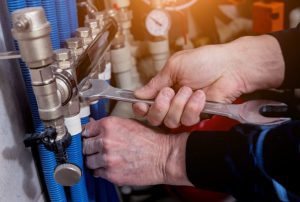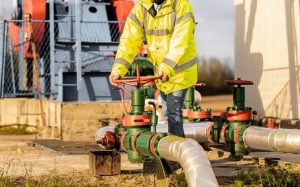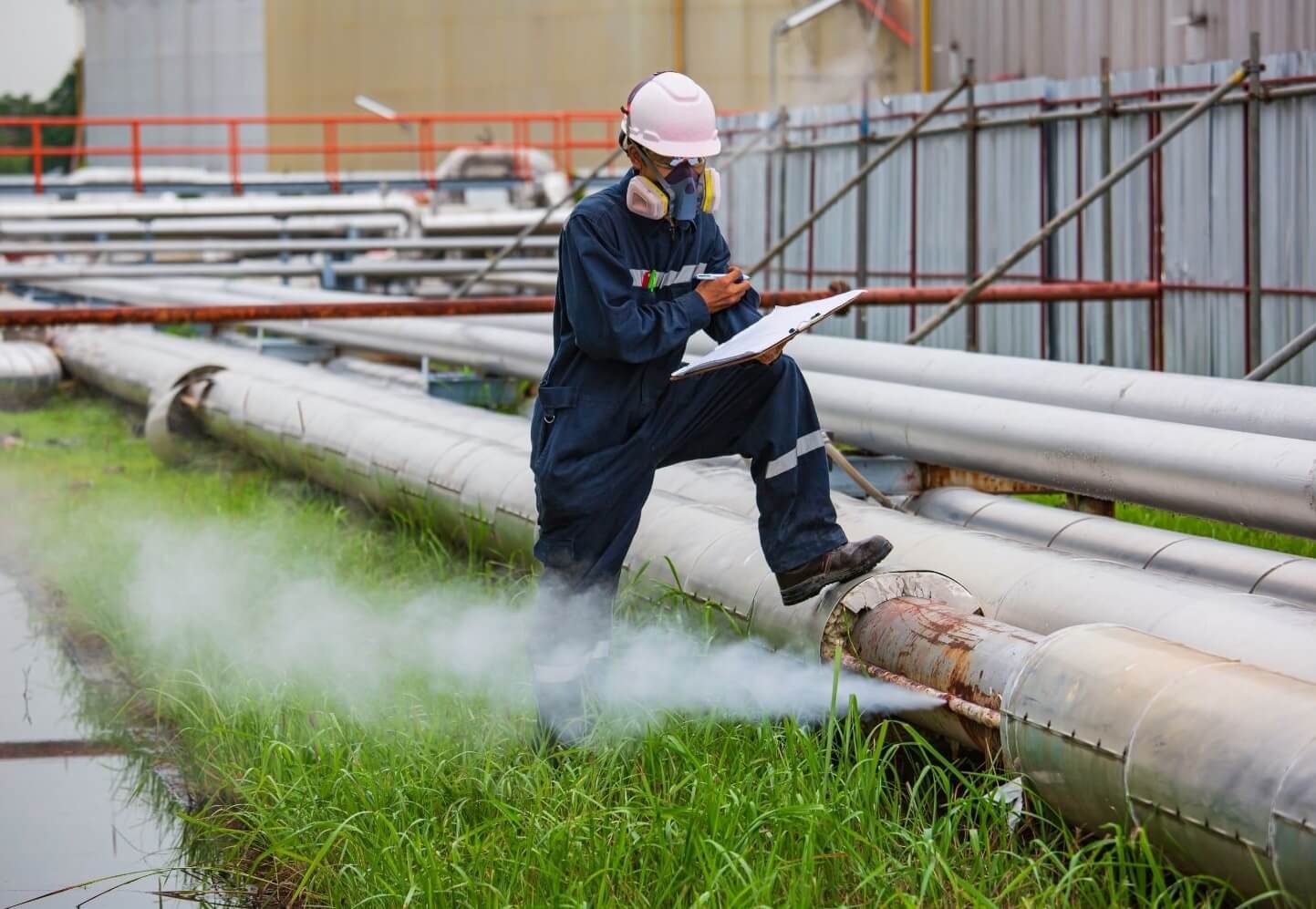To become a pipeline engineer, you’ll need to learn design, build and maintain pipelines to transfer liquid and gaseous substances such as oil, water or natural gas. This role is vital across energy, water and infrastructure industries, ensuring safe, efficient and sustainable pipeline developments. Pipeline engineers are involved in projects that include new pipeline developments, supervising construction works, and ongoing pipe maintenance. If you are interested in engineering, problem-solving and large-scale infrastructure projects, becoming a pipeline engineer is a good career choice. This guide gives the step-by-step career plan to become a pipeline engineer in the UK and the required qualifications and core skills involved.
What Does a Pipeline Engineer Do?
To become a pipeline engineer, you are responsible for planning, designing, constructing and maintaining a pipeline. The pipeline should be safe and environmentally compliant, and the materials should also be transported cost-effectively.
The main responsibilities of the pipeline engineer are:
- Designing Pipeline Systems: Engineers use computer-aided design (CAD) software to design efficient, cost-effective and safe pipelines. They take into consideration the type of material that needs to be transported, the terrain, the impact of the pipeline on the environment and the safety regulations that need to be followed.
- Supervising Construction: A mechanical engineer oversees the building of a pipeline, making sure that it follows the design, budget, and timeline. They work closely with civil engineers and contractors.
- Risk and Safety Assessments: To become a pipeline engineer, you analyse the risks associated with the transport of the pipeline, the potential environmental impact, the risk of the pipeline springing a leak, and the safety of the technique used to construct the pipeline. They also outline contingency plans to prevent these issues or manage them.
- Maintenance and Inspection: Engineers also manage the maintenance of existing pipelines, conducting regular inspections to assess for corrosion, leaks or other issues, and keeping pipelines in good shape and up to code.
- Project Management: To become a pipeline engineer, you typically manage projects from the proposal and planning phase through to completion. This includes developing budgets and schedules and overseeing dozens of stakeholders, from environmental agencies to clients and contractors.
- Environmental considerations: To keep up with environmental concerns, engineers need to design and build pipeline projects that fit into environmental regulations. They need to minimise the impact of pipelines’ construction and operation on ecosystems.

Average Pipeline Engineer Salary in the UK
The salary of a pipeline engineer is £45000 to £55000, depending on how much experience one has. People usually start working as construction field engineers and move up through the ranks, which could also explain the lower salary for experienced.
Their salary in the UK depends on which company he is working for and which part of the country he is based. For example, a graduate engineer in a pipeline group with UK experience would be expected to earn £25000 to £35000 per year.
Once they reach the mid-level, engineers can expect to earn between £40,000 and £55,000. Those who are senior pipeline engineers or manage large-scale projects, like in the oil and gas industry, can earn £60,000 or more. Engineers can also expect bonuses and allowances if they work offshore or overseas.
Key Skills for a Successful Pipeline Engineer
To become a pipeline engineer, you must explore technical, analytical and project management skills. You should develop:
- High degree of technical understanding of engineering principles: To become a pipeline engineer, you must have a detailed knowledge of civil, mechanical, and chemical engineering principles, especially fluid dynamics, material science, and structural design.
- Fluency in CAD and Simulation Software: Engineers utilise CAD (Computer-Aided Design) to create intricate pipeline designs. Knowledge of simulation software is necessary, as programs like AutoCAD, ANSYS and SolidWorks analyse pipeline systems to ensure the best possible design and prevent failures.
- Problem-Solving and Critical Thinking: Engineers are often tasked with finding a solution to a complex problem. For instance, designing a pipeline in a mountainous region or a wetland environment could present numerous challenges.
- Project Management Skills: To become a pipeline engineer, you often lead large project teams and collaborate with stakeholders and subcontractors. Good project management skills are needed to plan and oversee the activities of multiple teams and keep projects on schedule and under budget.
- Attention to detail: Safe and appropriate construction of pipelines, from design to inspection, requires attention to detail.
- Standards of Health and Safety: To become a pipeline engineer, you must be familiar with health and safety standards unique to the oil and gas industry to ensure that workers, the environment and the public are safe around pipelines.
- Communication and Teamwork Skills: To become a pipeline engineer, you interact with a variety of stakeholders. These include environmental scientists, civil engineers, construction crews, and government representatives. Successful completion of a project requires good communication and teamwork skills.

Steps to Become a Pipeline Engineer in the UK
Becoming a pipeline engineer involves gaining the right academic qualifications, developing practical skills, and gaining experience in the field. Here’s a step-by-step guide:
- Complete GCSEs and A-Levels: Start by completing your GCSEs, focusing on subjects such as Mathematics, Physics, and Chemistry. Afterward, at A-Level, take subjects like Maths, Physics, Further Maths, or Design and Technology. These subjects are essential for gaining entry into an engineering degree program.
- Earn a Bachelor’s Degree in Engineering: To become a pipeline engineer, you will need to obtain a Bachelor’s degree in Civil Engineering, Mechanical Engineering, or Chemical Engineering. These programs typically last three to four years and cover essential topics such as fluid mechanics, materials science, and thermodynamics.
Universities such as Imperial College London, University of Manchester, and University of Edinburgh offer strong engineering programs that are highly regarded in the UK. - Complete Industry-Specific Training and Internships: While completing your degree, gaining practical experience through internships or work placements is highly beneficial. Look for internships with energy companies, infrastructure firms, or environmental agencies to gain hands-on experience in pipeline design, construction, and maintenance. Practical experience is valuable when entering the job market and can help you build professional networks.
- Pursue a Master’s Degree (Optional): Although not always necessary, some pipeline engineers pursue a Master’s degree in a specialized area such as Pipeline Engineering, Offshore Engineering, or Energy Systems Engineering. A Master’s degree can help you specialize in a particular area of pipeline engineering, enhance your skills, and improve your career prospects.
- Obtain Professional Certification: After gaining your degree, you will need to work towards becoming a chartered engineer (CEng) or an incorporated engineer (IEng). To do this, you must register with a professional body, such as the Institution of Civil Engineers (ICE) or the Institution of Mechanical Engineers (IMechE). Achieving chartered status demonstrates your professional competence and commitment to high industry standards.
- Gain Work Experience in the Field: After graduating, gaining on-the-job experience is essential. Entry-level pipeline engineers usually start in junior roles, assisting senior engineers with pipeline design, construction supervision, and risk assessments. Working on a variety of projects, including onshore, offshore, and international pipelines, can help you develop the skills needed to progress in your career.
- Continue Professional Development: To become a pipeline engineer, you will need to stay updated on the latest technologies, regulations, and best practices in pipeline design and construction. Engaging in continuing professional development (CPD), attending workshops, and earning additional certifications can help you advance your career and take on more senior roles.

Tips for Aspiring Pipeline Engineers
- Have Early Hands-On Experience: Find an internship or work placement during your undergraduate years. Working with companies in the energy, water, or construction sectors will provide valuable exposure to pipeline engineering.
- Stay up to date with industry trends: Pipeline engineering is an ever-evolving field with new technologies, materials and environmental standards. Read industry journals, attend conferences and join professional organisations to keep up.
- Network and build professional relationships: Getting to know other engineers and professionals in the energy or construction field can lead to job opportunities and advancement in the industry. Participate in industry events, join engineering societies, and find mentors to guide you.
Frequently Asked Questions
Why Should You Become a Pipeline Engineer?
Being a pipeline engineer is a great career choice if you enjoy engineering, infrastructure and large-scale projects. It’s a highly rewarding role which combines technical knowledge with problem-solving, and you’ll have the chance to work on projects that have a huge impact on society, from energy supply to water delivery.
Is a Career as a Pipeline Engineer Right for You?
A passion for numbers and a preference for big, complicated engineering problems can make a career as a pipeline engineer very satisfying. To succeed in this field, you’ll need to be detail-oriented, analytical, and a team player. You’ll also get to work in the energy, water or environmental protection industries.
What Are the Salary Prospects for Pipeline Engineers in the UK?
Graduate pipeline engineers can earn between £25,000 and £35,000 a year. With experience, salaries could rise between £40,000 and £55,000, rising further to £60,000 or above for senior engineers, especially in the oil and gas sector. Engineers working on offshore or overseas projects can also receive additional allowances and benefits.
What Qualifications Are Needed to Become a Pipeline Engineer?
To enter this profession, you need a bachelor’s degree in Civil, Mechanical or Chemical Engineering and ‘on the job’ industry-specific training, internships and professional certifications (e.g., to become a chartered engineer).
Do You Need Work Experience to Start a Career as a Pipeline Engineer?
Yes, obtaining practical and relevant work experience during your studies through internships or placements is crucial. Having said that, once a recent graduate enters the field as an entry-level engineer, s/he is often assigned to work under a more senior engineer. In this way, the engineer builds the practical skills needed to succeed. Internships or placements with energy companies, infrastructure firms, or environmental agencies can help build the basic experience for a pipeline engineering career.
What Is the Career Outlook for Pipeline Engineers?
Pipeline engineers are still in demand – with the most immediate need in the oil and gas, water management and renewable energy sectors – because infrastructure requirements worldwide continue to increase. Pipeline engineers will be required to guide and maintain energy-efficient and sustainable systems for the transportation of liquids and gases. The drive to cleaner energy also promises to spur innovation and create further opportunities for pipeline engineers, with the development of hydrogen pipelines among the key prospects.
What Are the Career Progression Options for Pipeline Engineers?
With experience, you can climb the hierarchy of positions to Senior Pipeline Engineer, Project Manager or Pipeline Design Lead. There are also opportunities to specialise in offshore pipelines, environmental impact or pipeline integrity management. Some engineers also move into consulting and provide specialist expertise on pipeline projects to companies and governments while taking on further training with a Master’s degree or professional certifications leading to leadership positions or more technical roles.
What Are the Exit Options and Opportunities Beyond Pipeline Engineering?
These pipeline engineer skills, such as project management, technical knowledge and problem-solving, are highly transferrable to other professions. Many pipeline engineers move on from the industry and find jobs as civil engineers, structural engineers or energy consultants. Others may also move on to environmental engineers, specialising in sustainable infrastructure projects, or construction managers, leading large construction projects in the industrial sector. Engineers with project management skills may also move to engineering leadership or operations management positions.


